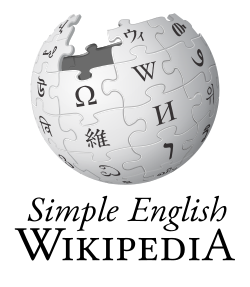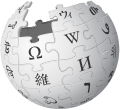This article cites Wikipedia (or sources that take information from Wikipedia) in a circular manner .(June 2025) |
 Logo of the Simple English Wikipedia | |
Type of site | Online encyclopedia |
|---|---|
| Available in | |
| Owner | Wikimedia Foundation |
| URL | simple |
| Commercial | No |
| Registration | Optional |
| Users | 1,716,887 users, 23 administrators as of 4 February 2026 |
| Launched | September 18, 2001 [1] |
Content license | Creative Commons Attribution/ Share-Alike 4.0 (most text also dual-licensed under GFDL) Media licensing varies |
The Simple English Wikipedia is a modified English language edition of Wikipedia written primarily in Basic English and Learning English. [2] It is one of ten Wikipedias written in an Anglic language or English-based pidgin or creole. The site has the stated aim of providing an encyclopedia for "people with different needs, such as students, children, adults with learning difficulties, and people who are trying to learn English."[ citation needed ]
Contents
Simple English Wikipedia's basic presentation style makes it helpful for beginners learning English. [3] Its simpler word structure and syntax, while missing some nuances, can make information easier to understand when compared with the regular English Wikipedia.

